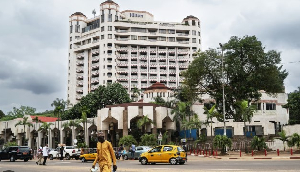The demand for sugar stands at over 220,000 metric tons, with local production at only 175,000 tonnes.
Business was as usual in popular supermarkets in Yaounde on April 28, 2016. Customers were busy making rounds around shelves to pick up items for their homes. At the same time, shop attendants were on hand to guide customers with special needs. Unlike at other shelves, those with different brands of sugar pulled customers. However, only one out of 10 customers opted for imported sugar, most of them expatriates.
Many locals like Christine Ondoa, justified her interest in local sugar to its affordability and availability. “The same 1kg of sugar that is produced locally costs FCFA 699 and FCFA 750 while the imported is sold at over FCFA 2, 000,” she noted. Locally produced sugar accounts for over 60 per cent of sales in one of the supermarkets visited, disclosed the Shop Director, Mathieu Durin.
He explained that the bulk of his customers were comfortable with local produce, stating that its accessibility and affordability has won the hearts of many clients. The space allotted to locally produced sugar brands speaks of the demand for the commodity. The Shop Director stressed that imported sugar makes only 40 per cent of sales.
The national demand for sugar is about 215, 000 to 220,000 metric tons annually, but supply is in the neighbourhood of 160,000 to 175,000 metric tons. SOSUCAM is Cameroon’s lone sugar producer. The company’s Chief Executive Officer, Louis Yinda in February 2016, disclosed the availability of a stock of 35,000 tons of sugar in its Mbandjock warehouse, 1,500 metric tons in shops in Douala; and same amount in Ngaoundere. He argued that SOSUCAM has the capacity to supply the local market without imports.
Even with unprecedented drought that threatened production, the management of the company stated that they were ready to bridge the demand/supply gap if given the opportunity. Shop owners however list SOSUCAM, DONGO and SODIPACK as local suppliers. Imported marks respond to well-defined traceability mechanisms from shipment, arrival at the Douala Seaport, customs clearance and distribution to shops, disclosed Mathieu Durin.
Infos Business of Friday, 6 May 2016
Source: cameroon-tribune.cm













